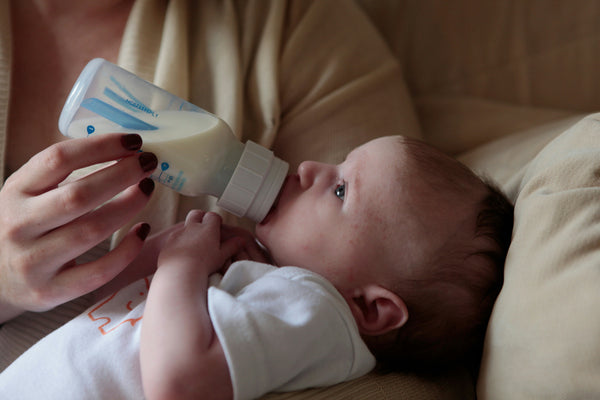How Withholding Can Impact Chronic Constipation in Kids
share this article

Constipation is a common issue among kids, causing significant discomfort and concern for both the little ones and their parents.
One critical factor that can contribute to chronic constipation is withholding behavior, where kids deliberately avoid bowel movements. This blog explores how withholding impacts chronic constipation in kids.
What Causes Withholding Behavior in Kids?
Withholding behavior occurs when kids resist the urge to have a bowel movement. This behavior can be due to various reasons, such as fear of pain, embarrassment, or simply being too busy playing.
When a kid withholds stool, it becomes harder and drier, making it more difficult and painful to pass later on. This can lead to a vicious cycle of withholding and constipation.
Daily reads to help your little ones lead happier and healthier lives.
Join the
Happy Gut Club
The Physiological Impact of Withholding
Stool Hardening
When stool remains in the colon for an extended period, the colon absorbs more water from it, causing the stool to become hard and dry. A study published in the Journal of Pediatric Gastroenterology and Nutrition found that stool withholding significantly increases the risk of developing hard stools, which are more difficult and painful to pass [1].
Stretching of the Colon
Chronic withholding can cause the colon to stretch, making it less effective at moving stool through the digestive tract. This condition, known as megacolon, can exacerbate constipation. Research in The Journal of Pediatrics indicated that chronic withholding behavior can lead to megacolon, complicating the treatment of constipation and prolonging recovery time [2].
Decreased Sensation
Over time, the stretched colon can lose its sensitivity, meaning the kiddo may not feel the urge to have a bowel movement as frequently.
This further perpetuates the cycle of withholding and constipation. A study in the Journal of Pediatric Surgery highlighted that kids with chronic constipation often have decreased rectal sensation, making it harder for them to recognize when they need to go to the bathroom [3].
Pain and Discomfort
Withholding often results in painful bowel movements, which reinforces the behavior. The fear of pain can make kids more likely to continue withholding. According to the American Journal of Gastroenterology, pain during bowel movements is a significant factor contributing to continued stool withholding in kids with chronic constipation [4].
Psychological Effects
Withholding can also have psychological impacts, such as anxiety and stress around using the bathroom. These psychological factors can further exacerbate constipation. Research published in Clinical Pediatrics found that psychological stress related to bowel movements is common among kids who exhibit withholding behavior, often leading to a persistent fear of using the toilet [5].
Long-Term Consequences of Withholding
Chronic constipation due to withholding can lead to several long-term health issues, including:
- Fecal Impaction: Severe cases of withholding can result in fecal impaction, where a large mass of stool gets stuck in the colon and cannot be passed naturally.
- Encopresis: This condition occurs when liquid stool leaks around the impacted stool, leading to soiling. Encopresis can be socially and emotionally distressing for kids.
- Anal Fissures: Hard stools can cause small tears in the lining of the anus, known as anal fissures, which are painful and can bleed.
Strategies to Address Withholding
Addressing withholding behavior involves a combination of behavioral strategies and dietary changes:
- Positive Reinforcement: Encourage kids to use the bathroom regularly by offering positive reinforcement, such as praise or small rewards.
- Routine: Establish a regular bathroom routine, especially after meals, to encourage regular bowel movements.
- Dietary Changes: Increase fiber and fluid intake to help soften stools and make them easier to pass.
Begin Health Expert Tip
Check out what this Registered Dietitian suggests to help your kiddo add more fiber into their diet.
- Consult a Pediatrician: In severe cases, it’s essential to consult a pediatrician who can provide tailored advice and possibly recommend stool softeners or other treatments.
Summary
Withholding behavior can significantly impact chronic constipation in kids, leading to harder stools, a stretched colon, decreased sensation, pain, and psychological effects. Addressing this behavior with positive reinforcement, routine establishment, dietary changes, and professional guidance can help constipation symptoms and improve overall digestive health.
















